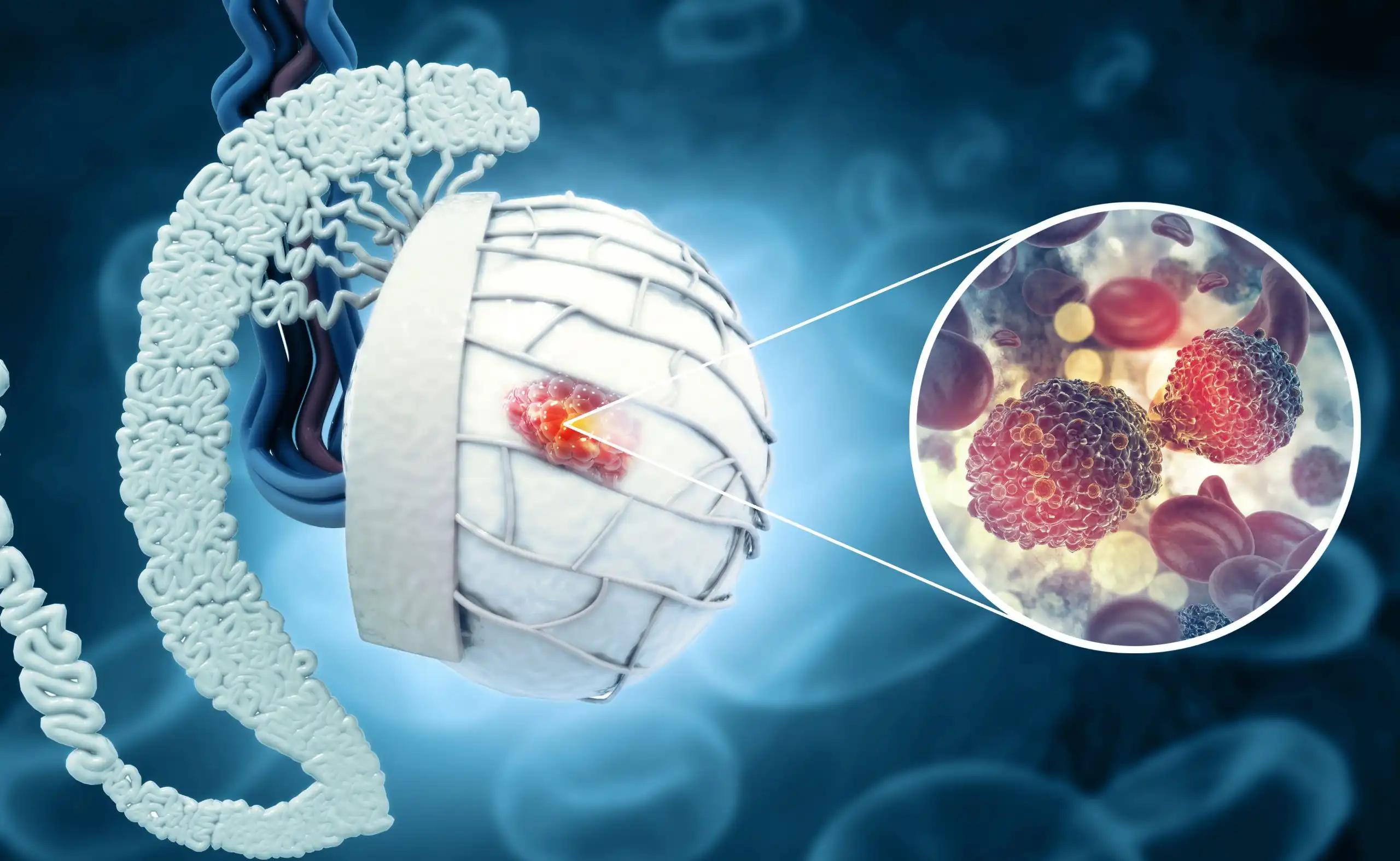KEY TAKEAWAYS
- Phase II basket trial (NCT02454972) evaluated lurbinectedin 3.2 mg/m2 1-h intravenous infusion every 3 weeks in a cohort of 21 patients with pretreated germline BRCA1/2 breast cancer.
- Confirmed partial response (PR) was observed in six patients [ORR = 28.6%; 95% confidence interval (CI) 11.3% to 52.2%] who had received a median of two prior advanced chemotherapy lines.
- Lurbinectedin was active in both BRCA mutations: four PRs in 11 patients (36.4%) with BRCA2 and two PRs in 10 patients (20.0%) with BRCA1.
- Median DoR was 8.6 months, median PFS was 4.1 months and median OS was 16.1 months.
- The most common treatment-related adverse events (AEs) were nausea (61.9%), fatigue (38.1%) and vomiting (23.8%). These AEs were mostly grade 1/2.
Antitumor effectiveness in homologous recombination repair-deficient animals and early clinical activity in BRCA1/2 breast cancer support the use of the selective inhibitor lurbinectedin in the treatment of this disease. Around 21 patients with pretreatment germline BRCA1/2 breast cancer participated in this phase II basket multitumor trial (NCT02454972), which assessed lurbinectedin 3.2 mg/m2 intravenous infusion every 3 weeks for 1 hour. Human epidermal growth factor receptor 2-negative and positive patients were included. Overall response rate (ORR) per RECIST v1.1 was used as the primary effectiveness outcome.
The duration of response (DoR), progression-free survival (PFS), overall survival (OS), and safety were considered secondary goals. Around 6 patients, who had previously been treated with a median of two lines of more advanced chemotherapy, showed evidence of a partial response (PR) [observed response rate (ORR) = 28.6%; 95% CI 11.3% to 52.2%]. Four progression-free survival (PR) events were seen in 11 patients (36.4%); these patients carried either the BRCA2 or BRCA1 mutation. There was an 8.6-month median DoR, a 4.1-month median PFS, and a 16.1-month median OS.
The overall response rate (ORR) was 42.9% (95% CI 21.8% to 66.0%) with three patients experiencing SD and seven patients experiencing progressive disease (PD). A total of 76.2 percent of patients experienced clinical benefit (PR + SD 4 months) (95% CI, 52.8% to 91.8%). Patients who had previously been treated with poly (ADP-ribose) polymerase inhibitors did not show any objective response. Nausea (61.9%), exhaustion (38.1%), and vomiting (23.8%), all related to treatment, were the most prevalent AEs.
The vast majority of these AEs were elementary level. Neutropenia was the most common toxicity of grades 3/4 (42.9% grade 4, 23.8% no febrile neutropenia). The primary objective of this phase II study was achieved, demonstrating that lurbinectedin is active against germline BRCA1/2 breast cancer. The risks associated with lurbinectedin were low and easily managed. Given the exploratory nature of this trial and the positive findings of other phase II studies, it is reasonable to pursue further development of lurbinectedin for this indication.
Source: https://pubmed.ncbi.nlm.nih.gov/36037567/
Clinical trial: https://clinicaltrials.gov/ct2/show/NCT02454972
Boni, V., Pistilli, B., Braña, I., Shapiro, G.I., Trigo, J., Moreno, V., Castellano, D., Fernández, C., Kahatt, C., Alfaro, V., Siguero, M., Zeaiter, A., Longo, F., Zaman, K., Antón, A., Paredes, A., Huidobro, G. and Subbiah, V. (2022). Lurbinectedin, a selective inhibitor of oncogenic transcription, in patients with pretreated germline BRCA1/2 metastatic breast cancer: results from a phase II basket study. ESMO Open, 7(5), p.100571. doi:https://doi.org/10.1016/j.esmoop.2022.100571.



